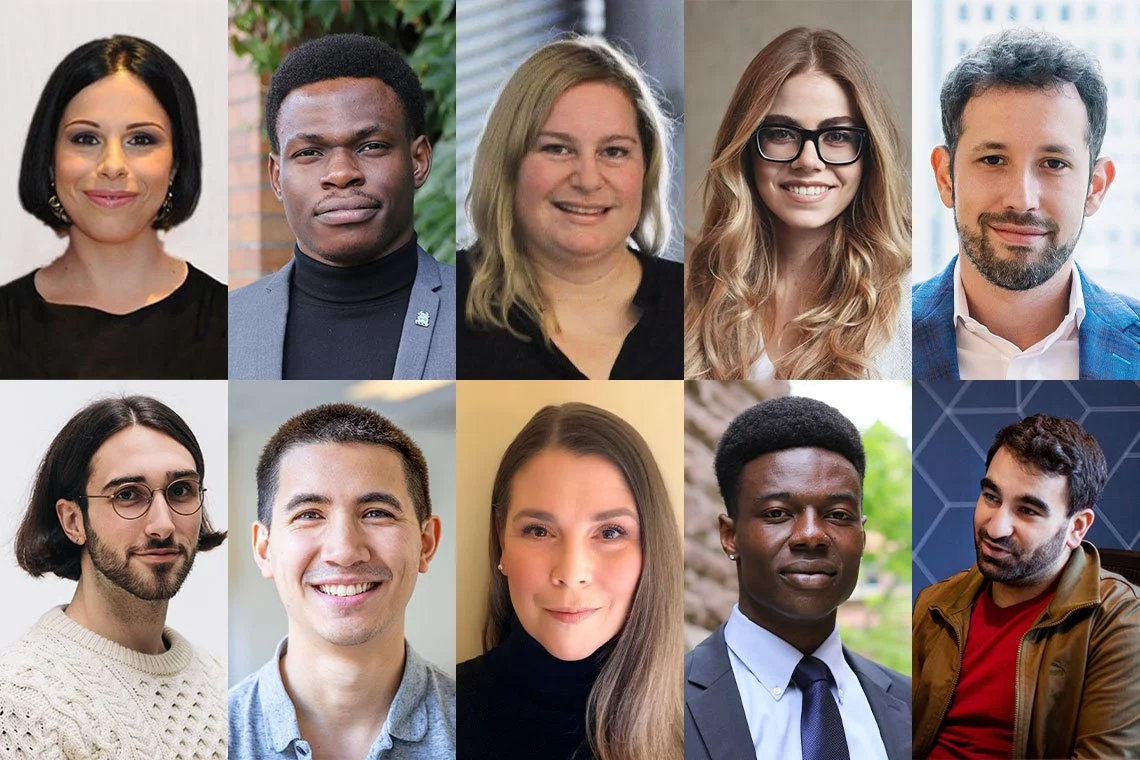Among the 10 startups to watch at University of Toronto Entrepreneurship Week 2022 are three with connections to the Department of Computer Science:
Cohere AI
Aidan Gomez
With human-machine interactions becoming increasingly common in modern society, Cohere is using AI-powered natural language processing to make it easier for people to talk to machines and vice versa.
The company, whose CEO Aidan Gomez is a protégé of deep learning pioneer and University Professor Emeritus Geoffrey Hinton, has created a software platform that helps companies infuse natural language processing capabilities into their business offerings using tools like chatbots.
The company recently raised US$125-million in funding and is preparing to open an office in Silicon Valley.
“For the first time, we've brought to market an effective NLP solution that is practical, accessible, and safe,” Gomez said in a statement. “With the opening of our new Palo Alto office, we're continuing to scale in all directions, bringing aboard new talent and rapidly increasing our compute capacity to train our next generation large language models (LLMs).”
JALI Research
Sarah Watling
JALI Research also operates at the intersection of AI and language, but in a very different space: video games. The company’s hyper-realistic facial animation technology is a standout feature of one of the world’s best-selling video games in recent years: the dystopian action role-playing game Cyberpunk 2077.
Growing out of research in the Department of Computer Science and supported by the UTEST accelerator, JALI draws from AI and linguistics to develop tools that accurately map phenomes — the smallest isolatable elements of sound — to visemes, the corresponding mouth shapes we see on a person’s face as they make those sounds. This allows video game characters in Cyberpunk 2077 to look and sound hyper-realistic across different languages.
What’s more, JALI Research’s tools can be scaled up at a relatively low cost, making them financially viable even for smaller gaming studios.
CEO Sarah Watling credited U of T’s UTEST program with helping the company commercialize its research.
“The UTEST program is a great hybrid of courses – some of them through MaRS and others through partnerships with various mentors who support businesses in the startup life cycle, including IP law firms,” Watling told U of T News. “You get to work closely with the leadership of UTEST on various aspects, whether it’s thinking through your problem space or value proposition, or improving your pitch.”
ODAIA
Helen Kontozopoulos
ODAIA is focused on helping the pharmaceutical sector use AI to boost their customer analytics, enrich commercial insights and drive informed sales prospecting.
Founded in 2018, ODAIA was spun out of research at U of T in collaboration with the University of Lausanne in Switzerland. The company’s software taps into existing data sources, including lab records, medical data and demographic information, and uses them to provide pharmaceutical firms with actionable insights that help them refine their sales efforts.
ODAIA was co-founded by Helen Kontozopoulos, an adjunct professor of computer science and co-founder of U of T’s DCSIL (Department of Computer Science Innovation Lab), who discussed her company’s journey at the Scaleup Showcase during the 2021 Entrepreneurship Week. ODAIA also counts several other current and former U of T researchers among its core team.
Earlier this month, the company announced that it raised $17.5-million in Series A funding.




